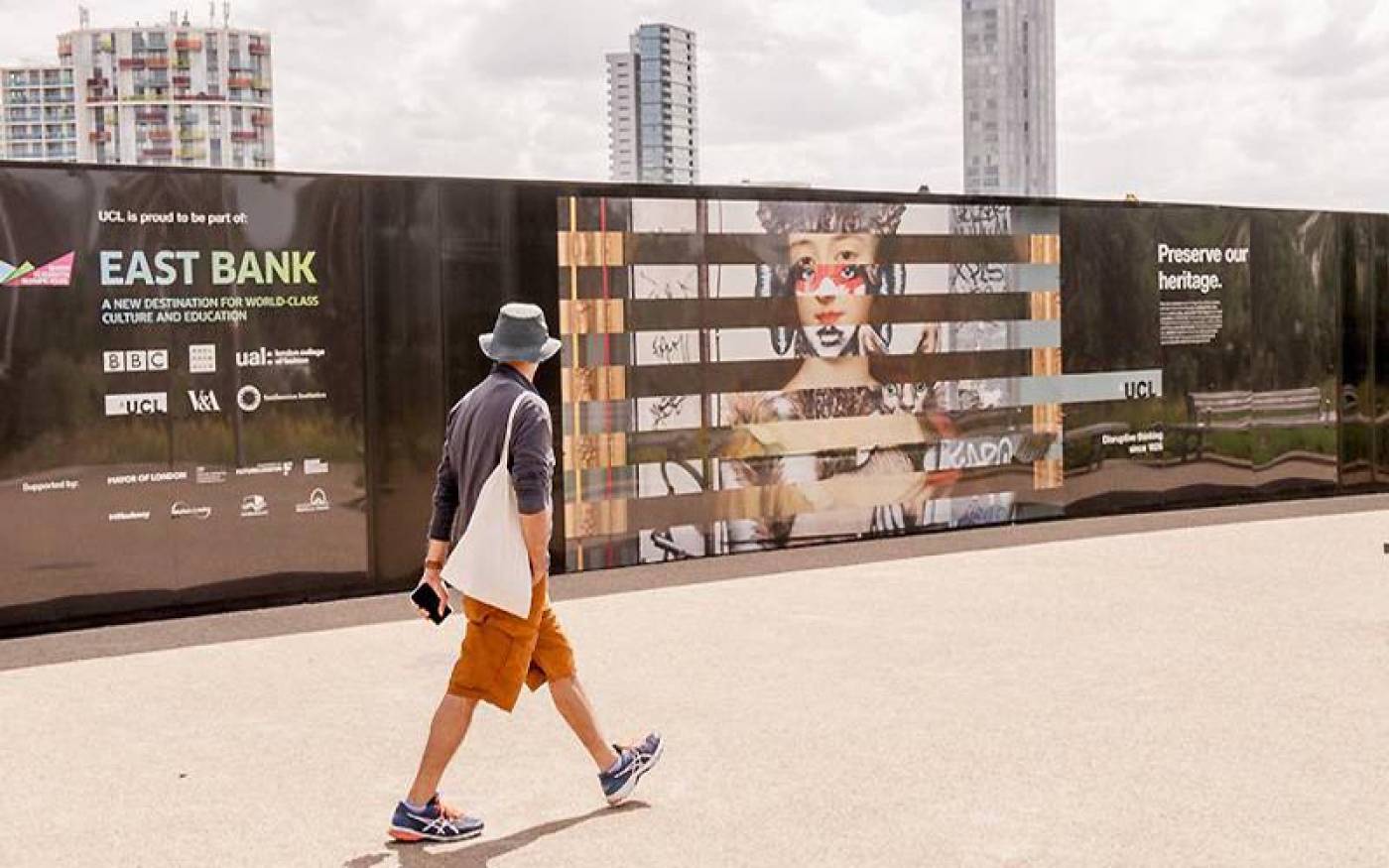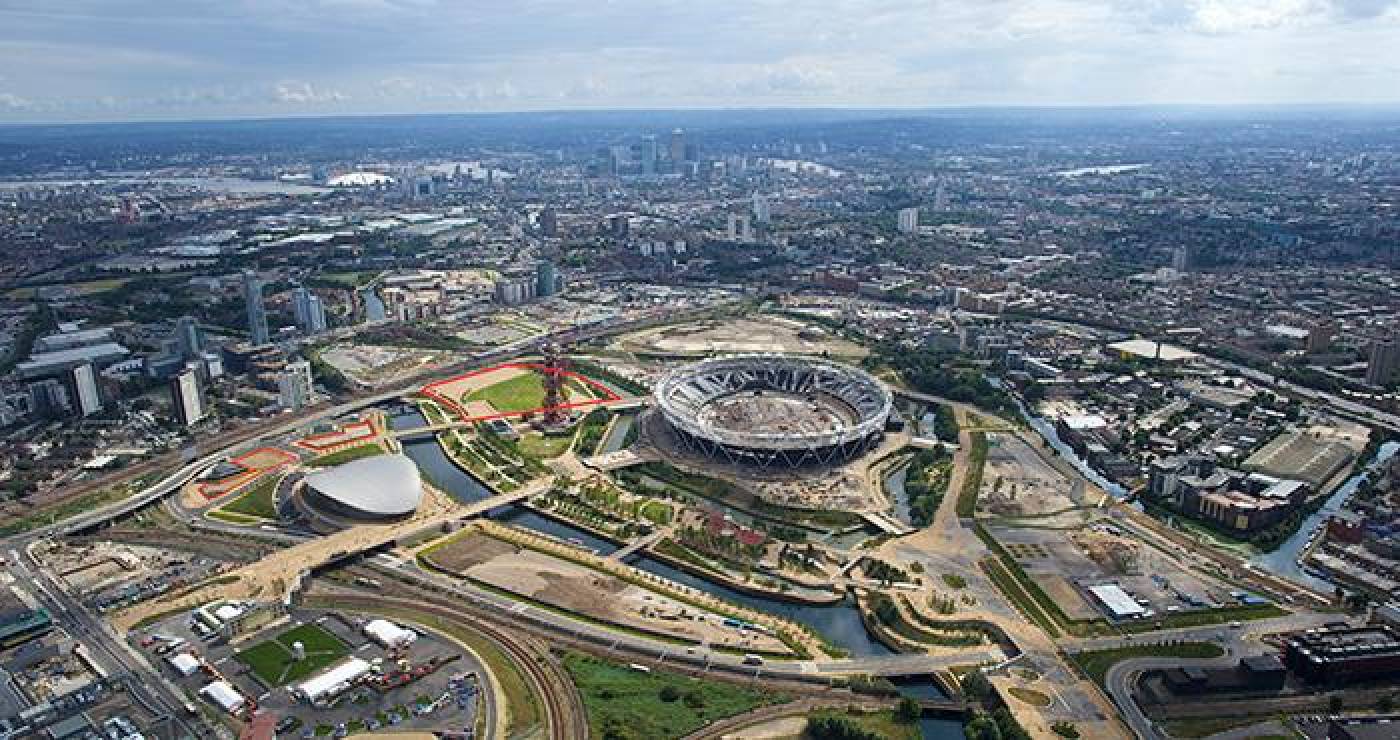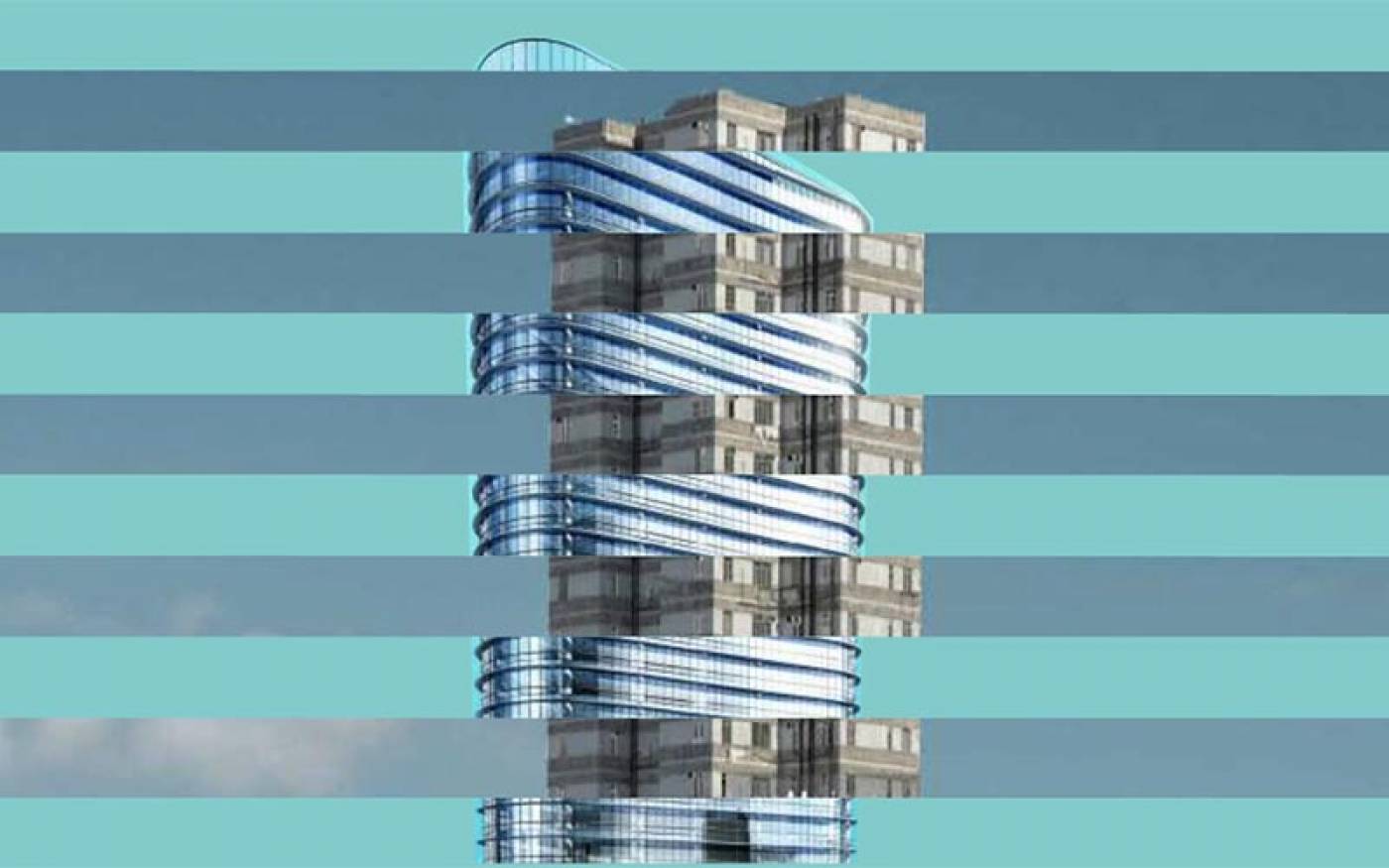UCL East is an innovative new cross-disciplinary research and learning environment, home to UCL Urban Room and MASc Global Urbanism, in the Queen Elizabeth Olympic Park, London E20



UCL Urban Laboratory has played a leading role in consulting on the spatial planning and design of the new UCL East campus, and in co-ordinating the new cross-disciplinary urban programme, MASc Global Urbanism, at One Pool Street in the first phase of the development.
At UCL East we are prioritising new transdiciplinary approaches to global urbanisation. Our new postgraduate programme features radically collaborative approaches to education, emphasising the university's commitment to research-based education, focused on global challenges.
New programmes
UCL Urban Laboratory is delivering a new postgraduate programme - MASc Global Urbanism - as part of the first phase of UCL East. Teaching is linked to the new UCL Urban Room as well as the other shared and specialist spaces in the Future Living Institute. The programme builds on the success of the established MSc Urban Studies programme, offering an expansion of UCL’s urban teaching that has a particular focus on the link between theory and practice in an international comparative context.
Urban Room and Memory Workshop
Exploring the impact of industry, globalisation and gentrification on the six Olympic Park boroughs and their people, UCL Urban Room, is a practice-based space dedicated to debate and engagement around key questions of past and future urbanism. At the heart of the new campus, the public-facing Urban Room is a space for events, workshops and engagement with local stakeholders, professional audiences, and the wider public. It incorporates the Memory Workshop and Mobile Memory Bike, vital new resources opening up access to UCL’s public and oral history collections, in dialogue between UCL urban researchers and local community partners.
Find out about the Urban Room and Memory Workshop
Local engagement
Engagement with local communities and organisations is at the heart of our presence in east London. To enable an open, accessible and engaged university campus, we are committed to enabling and supporting productive long-term relationships. You can find a number of the projects we have already facilitated in the environs of the Queen Elizabeth Olympic Park below:
- Groundbreakers: Community Mapping Workshops
A series of two participatory mapping workshops exploring people’s relationships with the Queen Elizabeth Olympic Park. The workshops took place during July 2019 with UCL East Community Engagement seed funding. The aim of the workshops was to pilot the types of community partnerships, audiences and activities that might be developed as part of the Urban Room and Memory Workshop programme at UCL East when it opens.
- Cultural Infrastructure around the Queen Elizabeth Olympic Park
In November 2017 we published a report identifing and presenting existing and new data on cultural infrastructure in the environs of UCL East. the purpose is to inform the continuing development of the UCL East vision and to provide a baseline for monitoring the future impact of UCL East on existing cultural resources around the Olympic Park. We will continue to return to this work during the development and operation of the campus.
- Here East
UCL Urban Laboratory maintains a presence at UCL's current facility at Here East, on the north west side of the Queen Elizabeth Olympic Park, a technology and creative campus where architects, engineers, computer scientists, mathematicians, anthropologists and many others are working side-by-side, interacting with nearby entrepreneurs, performers and researchers. We have hosted a number of public activities in the space, providing locals with the opportunity to engage with our work, and those across the city to engage with this transforming area, including:
- A short intensive research summer school in 2016 for over-16's from the local area and from UCL and Ravensbourne to discuss university-led urban regeneration.
- The second edition of our 'Edge: Situated Practice in Art, Architecture and Urbanism' programme on 7 October 2017, in collaboration with the Folkestone Triennial. One of the first major UCL events to be hosted at Here East, it brought together practitioners and thinkers to consider creative place-making, arts-led urbanism and the use of interstitial spaces in the city. As part of 'Periphery’, artists Jill Magid and Do Ho Suh provided keynotes, whilst an earlier film event was hosted on 6 October with Open City Documentary Festival. Find out more about the event in the Bartlett Review 2017.
- City Mill Skate
Working with partners at UCL, including the Urban Laboratory, artists and skaters Esther Sayers and Sam Griffin have proposed a set of incedental obstacles, or 'skate dots', to sit within the fabric of UCL East. It will form a series of interlinked architectural punctuations, akin to a sculpture trail. An article outlining the thinking on the project in which Sayers and Griffin contrast the totalised and singular environment typically associated with contemporary skatepark design with architectural interventions that are incidental - ‘skate dots’ - is featured in the eight issue of Urban Pamphleteer, and you can download a poster (pdf) from our website.
- UCL's original Stratford proposition
UCL's original plans to develop a campus in the Stratford area in 2012, on the site of the Carpenters Estate, were scrutinised by UCL Urban Laboratory and other colleagues across UCL, who promoted an ethical community-led regeneration proposition that incorporated the significant built environment expertise that exists in the university and the local area.
- Other events
We have hosted a number of other events on the Queen Elizabeth Olympic Park and elsewhere directly connected to local issues, including:
- Urban Lab Films present DEMOLITION: Dream and Destruction, screening event at The White Building in Hackney Wick, curated by artist Hilary Powell.
- Exploring Virtual Control workshop, an introduction to the mechanics of control within privatised public spaces with artists Max Colson and Ollie Palmer.
- Housing and Regeneration in Newham panel event in 2012, hosted by Prof Ben Campkin, with Anna Minton and Loretta Lees, focusing on the Carpenters Estate.
Other research and activities
A number of UCL Urban Laboratory activities are being used to inform the campus development and our presence in east London:
- University-led urban regeneration
This research project by Dr Clare Melhuish was initiated in Summer 2013 and supported by UCL Estates. The research brief was to produce a set of comparative case studies in university-led regeneration, using a range of cross-disciplinary urban research methods, which would also inform the development of UCL's own spatial development project in east London - UCL East - and discussions about the university's own role within inclusive urban development in London.
- Urban Rooms: Civic Schools & City Learning
In May 2018, UCL Urban Laboratory hosted a one-day symposium, keynote lecture and exhibition to discuss the past, present and future of ‘urban rooms’ as spaces of engagement in the UK, and to inform the vision for the planned Urban Room at UCL East.
Led by PhD student Sol Pérez Martínez, the event considered the ‘urban room’ concept in the context of the 2013 Farrell Review of Architecture and the Built Environment and the several initiatives that have since come together under the umbrella of the Urban Rooms Network, but also in the historic precedent of ‘urban studies centres’ in the UK that emerged during the 1970s.
On the opening day, Christine Gaspar from the Centre for Urban Pedagogy in New York City gave a keynote lecture, and on the second day there was a symposium with 25 speakers. People who attended the exhibition contributed with ideas and comments for UCL’s Urban Room in a participatory wall.
- UCL Housing
UCL is a centre for housing research and teaching. We have been supporting a research initative considering how UCL might draw on this knowledge to directly engage with housing in London. UCL provides accommodation to 6,000 students each year, and our population of 42,000 students and 13,000 staff represents significant housing demand and potential impact on local communities. Affordability is an issue for our staff and students, particularly those on low incomes. An event in February 2020 considered different models of university involvement in housing, including relationships to urban regeneration, housing finance and partnerships with communities and developers. External participants were invited from local government, housing providers, finance and tenants organisations, linking to wider issues of key worker housing and affordability in London. The work has been funded through the Bartlett Innovation Fund project, UCL Innovation and Enterprise, and the EPSRC Impact Acceleration Account.
- Curating the City: urban heritage and university development
As part of the Curating the City cluster in the UCL Centre for Critical Heritage Studies, Dr Clare Melhuish has been working with colleagues at Roma Tre University in Italy and the University of Gothenburg in Sweden to evaluate the impact of university development on urban areas and heritage. The international exchange was convened to explore the parameters for a future research project comparing the impact of university developments on their neighbourhoods in three case study sites: Roma Tre Università degli Studi in Testaccio-Ostiense, Rome; UCL East in the Queen Elizabeth Olympic Park and surrounding boroughs; and the University of Gothenburg at campus Nackrosen. See more information about these and other developments in the co-edited publication, Melhuish et al, Co-Curating the City: universities and urban heritage past and future, UCL Press 2022.
- UCL Global Policy Fellows
Co-ordinated by UCL STEAPP with the participation of UCL Urban Laboratory, and supported by the FCO’s Global Future Cities Prosperity Fund, the aim of this programme is to work with identified cities in middle income countries to improve the way they are planned and managed, in order to increase local prosperity and quality of life, develop sustainable economic relationships with the UK, and support implementation of the UN’s SDG 11, ‘to make cities and human settlements inclusive, safe, resilient, and sustainable’, and SDG 9, to ‘build resilient infrastructure’.
The pilot programme provided an opportunity for 12 participants working in urban policy from Malaysia, Kenya, South Africa, Pakistan, and for the World Bank to spend a week visiting UCL and engaging with academics around the theme of ‘future cities’, bringing their own experiences and interests to the table. The key challenges identified by the participants included transportation, urban development, and resilience, which were explored through a series of meetings, seminars, and visits. Urban Lab Director Dr Clare Melhuish and Co-Director Prof Jenny Robinson delivered two half-day sessions to the group on urban regeneration focusing on London’s Special Opportunity Areas at the Olympic Park and Vauxhall Nine Elms. Clare Melhuish’s seminar session at Here East presented Urban Lab research on universities and urban regeneration, ‘University urbanism: campus development and urban regeneration’, highlighting the role of university actors in urban development processes. The session included a walking visit to the Olympic Park and in-situ discussion of the Olympics Legacy strategy as the framing for the development of UCL East. Many of the group reported this as the most useful session of the week.
 Close
Close

